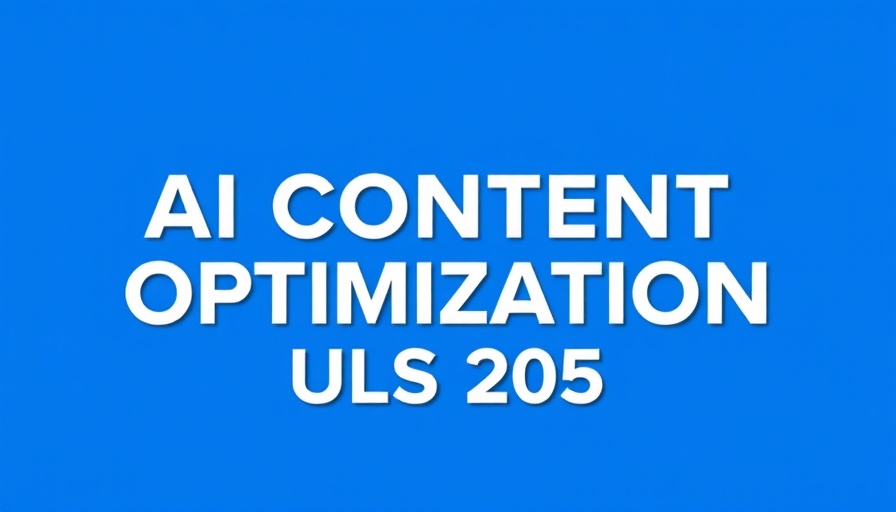
The Rise of AI Content Optimization Tools
As we approach 2025, the landscape of content marketing continues to evolve rapidly, driven by technological advancements that streamline and enhance the writing process. Among these innovations, AI content optimization tools are making waves, transforming the way marketers approach their written content. But what are these tools, and why should every digital marketer consider leveraging them?
What Makes AI Content Optimization Tools Essential?
In a world saturated with digital content, standing out is more challenging than ever. This is where AI content optimization tools come into play. They offer a myriad of features that can significantly improve content quality and search rankings. From identifying missing keywords to generating meta tags, these tools provide critical insights that can enhance your content strategy.
Feature Highlights: The Core Capabilities Behind Optimization Success
Let’s delve into the essential features that every effective content optimization tool should possess:
1. Content Scoring
Imagine having a report card for your blog posts. Content scoring offers a clear picture of how well-optimized your articles are, usually rated from 0 to 100. This straightforward grading system empowers marketers to identify content that may need refreshing. For instance, an article with a content score of 30 is likely to lie in the shadows of competitors scoring 70 or higher. Knowing which articles need work can directly affect your SEO strategy.
2. User-Friendly Content Editors
A clean, efficient content editor can make all the difference in your writing process. An intuitive platform not only improves productivity but also allows real-time changes to reflect your content score. When your optimization tool actively shows how your edits enhance your content's SEO potential, it encourages continuous improvement and creativity.
3. Powerful AI Integration
Today’s leading content optimization tools leverage advanced AI technologies, especially natural language processing (NLP) and machine learning. These technologies do much more than produce content. They analyze what works and what doesn’t. AI features allow marketers to automatically generate title suggestions, headings, and even meta descriptions—saving hours of brainstorming.
The Real-World Impact of AI Tools
Curious whether such tools truly deliver on their promises? Consider the success stories of organizations that have integrated these systems. Marketing professionals are reporting increases in traffic and engagement attributed to their optimization efforts, providing real, measurable results.
Future Predictions: The Landscape of Content Marketing and AI
As we gear up for 2025 and beyond, the synergy between AI and content marketing will only deepen. Innovations may lead to higher levels of personalization in content, enabling brands to tailor messages to individual user experiences. Enhanced tools will likely emerge, incorporating predictive analytics to forecast content performance.
Broader Implications: Why Every Marketer Should Embrace AI
AI is not just a passing trend; it’s a tool that can fundamentally change how we communicate with audiences. As marketers, understanding and adopting AI-driven strategies becomes essential for staying competitive in the digital realm. Embracing these tools offers benefits that can streamline workflows, improve content quality, and ultimately lead to better customer engagement.
Common Misconceptions About AI Content Tools
Despite their vast potential, misconceptions abound regarding the use of AI in marketing. One common myth is that AI tools create dull, generic content. In reality, these tools enhance human creativity by providing suggestions and insights that can lead to more dynamic and engaging writing.
Final Thoughts: Preparing for the AI-Driven Future of Marketing
As we stand on the brink of a new era in digital marketing, the importance of adopting AI content optimization tools cannot be overstated. These innovations offer an opportunity to refine your content strategies, engage audiences effectively, and harness the power of technology to achieve your marketing goals. Investing in these solutions may well be the key to mastering the art of storytelling in the digital age.
 Add Row
Add Row  Add
Add 




Write A Comment